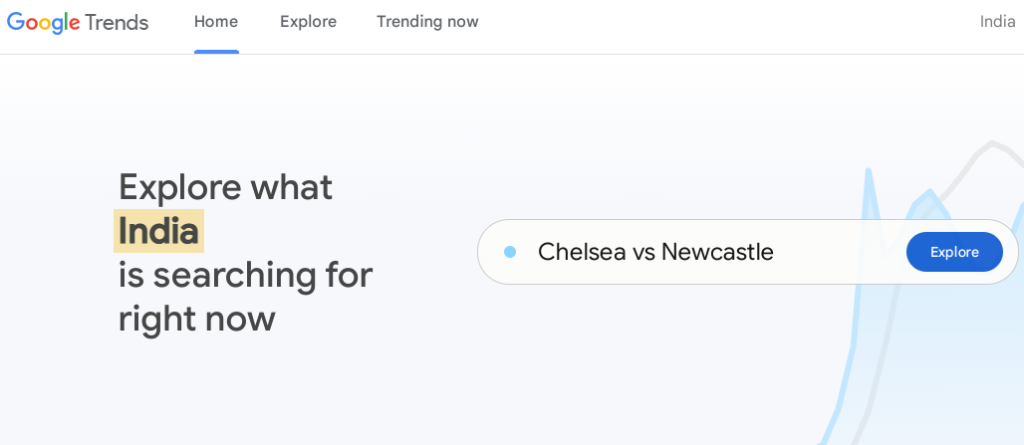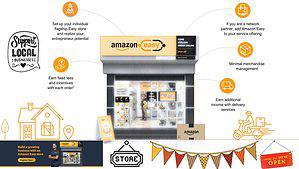23 Blogging Tips for New Bloggers: A Guide to Success, grow your blog and audience.
Blogging has become one of the most popular ways to express oneself, share knowledge, and even make a living.
Blogging for business is a powerful marketing and positioning strategy. Not only does it empower your SEO skills, but also fixes your authority in the field and helps build connections with your target audience.
Blogging has similar advantages when used by hobby bloggers and professional writers, too.
23 Blogging Tips for New Bloggers
However, starting a blog can be overwhelming, especially for newcomers to the digital landscape.
As per data more than 600 million blogs are active throughout the world, and for healthy reasons. It can be a part of your hobby or profession, blogging comes with several benefits.
It’s an invaluable tool for expressing yourself online and exploring your passions.
It’s also an effective way to become a leading voice in your niche, develop your brand, and even make money online.
To help you navigate this exciting journey, here are 23 valuable tips for new bloggers
1. Find Niche for Your Blog
Before you start your blog, identify your niche or area of expertise. Choose a topic that you are passionate about and resonates with your audience.
Blogging Topics for Beginners
- Business blogs
- Finance blogs
- Tech blogs
- Marketing blogs
- Travel blogs
- Food blogs
- Lifestyle blogs
- Personal blogs
- Fashion blogs
- Health blogs
- Food blogs
- Craft blogs
- Teacher blogs
- Mom blogs
- Coaching blogs
- Photography blogs
- Sports blogs
select your Niche as per expertise, skills, and knowledge so you will explore more in these topics and attract your audience.
2. Analyze your Competitors
Analyze your competitor’s articles, post strategy, and competitors’ posts which have high traffic values and trending key.
It will give you more ideas, understanding, and clarity about a topic that will help you in writing and designing.
3. Choose a Blogging Platform
Finding the right content management system (CMS) is important. This is the platform you will use to host and manage your blog.
There are many great blogging platforms with varying capabilities. But the most popular ones are:
4. Know your Audience
- Understanding Demographics: Knowing your audience involves gathering demographic information such as age, gender, location, education level, income, and occupation.
- Psychographics and Preferences: Beyond demographics, understanding psychographics is crucial. This involves delving into the attitudes, interests, values, lifestyles, and behaviors of your audience. By understanding their preferences, pain points, aspirations, and motivations, you can create content and offerings that resonate deeply with them.
- Communication Channels: Knowing your audience also entails understanding the platforms and channels they frequent for information and engagement.
5. Read consistency
You should read good articles, news, research papers,s, and blogs to write better and proper structure.
Developing reading habits will sharpen your mind, and empower your skill and creativity.
6. Create Quality Content
Content is king in the blogging world. Focus on creating high-quality, engaging content that provides value to your readers.
Make sure your posts are well-researched, informative, and well-written.
7. Be Consistent
Consistency is key to building a loyal audience. Establish a regular posting schedule and stick to it.
Whether you post once a week or three times a week, make sure you deliver content consistently.
8. Engage with Your Audience
Interact with your readers through comments, social media, and email. Respond to their questions, feedback, and suggestions.
Building a relationship with your audience is essential for long-term success.
9. Optimize for SEO
Learn the basics of search engine optimization (SEO) to improve your blog’s visibility in search engine results.
S.E.O for Blog
SEO helps your website rank higher in search engine results, which means more people will discover and visit your site.
This increase in organic traffic can be a significant source of potential customers.
Use relevant keywords, optimize your headlines and meta descriptions, and create high-quality backlinks to improve your site’s ranking.
- Internal links: Links within your blog posts that connect to other pages on your website or articles on your blog. This type of linking improves the SEO of your articles and readers will jump to your different blog articles and build an engagement with your blog.
- External links: Links within your blog posts that connect to third-party websites. These come in handy when you want to cite an important study or statistic from an external source.
10. Actively Promote Your Blog
Don’t just rely on organic traffic to grow your blog. Promote your content through social media, email newsletters, guest posting, and collaborations with other bloggers.
The more you promote your blog, the more traffic you will attract, viral your post, and help in ranking in Google.
11. Invest in a Good Design
Your blog’s design plays a crucial role in attracting and retaining visitors.
Invest in a professional-looking theme or design and make sure your site is easy to navigate and mobile-friendly.
12. Building an Email List and Newsletter
Start building an email list from day one. Offer a freebie or incentive to encourage visitors to subscribe to your newsletter.
Your email list is a valuable asset that you can use to promote your content, products, and services.
13. Monetize Wisely
While monetizing your blog is important, focus on providing value to your audience first and foremost.
Explore different monetization strategies such as affiliate marketing, sponsored content, digital products, and online courses.
14. Learn from Your Analytics and Track Performance
Pay attention to your blog’s analytics to understand what content resonates with your audience and what doesn’t.
Use this data to refine your content strategy and make informed decisions about the direction of your blog.
15. Network with Other Bloggers
Building relationships with other bloggers in your niche can open up new opportunities for collaboration, guest posting, and cross-promotion.
Attend networking events, join online communities, and engage with fellow bloggers to expand your reach.
16. Stay Updated with Industry Trends
The digital landscape is constantly evolving, so it’s essential to stay updated with the latest trends and developments in your industry.
Subscribe to industry newsletters, follow thought leaders on social media, and attend relevant conferences and webinars.
17. Don’t Get Discouraged
Building a successful blog takes time and effort, so do not get discouraged if you do not see immediate results.
Stay patient, stay consistent, and keep working on improving your blog. Success doesn’t happen overnight.
18. Be Authentic
Your readers can sense authenticity, so be genuine in your writing and interactions. Share your personal experiences, opinions, and insights to connect with your audience on a deeper level.
19. Refresh and Update your Post
Regular refreshes and updates of your post are some of the key tips to make your blog rank high in search engine result pages ( SERPs).
Add new things points in your article that educate and inform your target audience and make your article unique.
20. Never Stop Learning
The blogging world constantly evolves, so never stop learning and improving your skills.
Invest in your education by reading books, taking online courses, and experimenting with new techniques and strategies.
21. Experiment and Research
Your experiment and research with your blog can be strong methods to rank high in Google and achieve mastery in the blog.
Your experiment sharpens your blogging skills and makes you better every day in blogging.
22. Tools for Blog
Tools or useful Plugins if you are using WP like Sitekit, Yoast, Google Search Console, Google Analytics, WP Rocket, Semrush, etc to make your blog more effective, efficient, Google-friendly, and growing.
23. Cover Popular Search Topics.
You should be clear about covering popular search topics so that you will get traffic and an audience.
You can use Google Trends to learn more about trending topics and publish unique and trending articles.
Power of Google Trends
One tool that has become indispensable in the arsenal of marketing and strategic planning is Google Trends.
This dynamic platform provides valuable insights into search trends, offering businesses a window into consumer behavior and preferences.
Starting a blog can be a rewarding journey filled with personal and professional growth opportunities.
By following these tips and staying committed to your goals, you’ll be well on your way to building a successful and thriving blog. Good luck!









